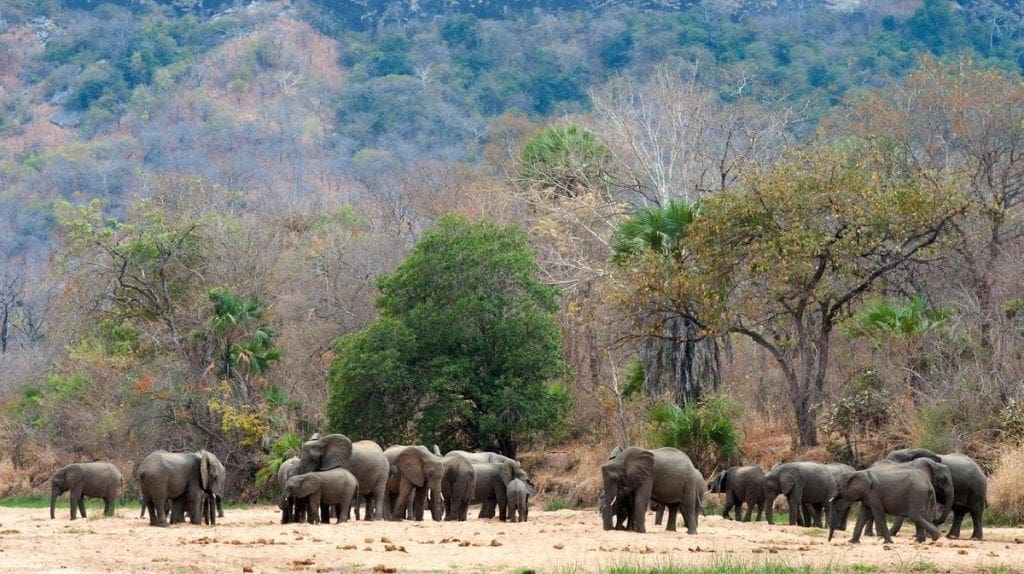When it comes to endangered wildlife, particularly the large african species, we’ve become all too used to hearing bad news paired up with gut-wrenching images. So it’s a nice breath of fresh air every now and then when some positive news comes around!
The Niassa Reserve, one of Africa’s largest protected wildlife areas, has not lost an elephant to poaching since May 17, 2018 according to the Wildlife Conservation Society, a New York-based nonprofit that helps the Mozambican government manage the national reserve.

The reserve is located in the remote northern corner of Mozambique and spans over 16,000 square miles, which makes it larger than a few countries, including Switzerland. In recent years the park has suffered “nearly catastrophic elephant poaching’ with thousands of individuals falling victim to poachers the Wildlife Conservation Society said, which cut the population from around 12,000 to 3,675 in 2016, according to an aerial survey.
Initial efforts to stop the widespread slaughter reduced the number of illegal killings to about 100 elephants a year, but the conservation group said the rate was still “far too high”
In early 2018, the Wildlife Conservation Society, the Mozambican government and other partners on the ground in the Niassa Reserve launched a coordinated anti-poaching strategy, which includes deploying a new rapid intervention police force, an increased aviation program providing surveillance and the year-round deployment of a helicopter and Cessna aircraft, and tough new sentencing of poachers.

This new strategy eradicated all illegal mining and fishing within Niassa, while the park saw an 87% decline in the number of illegally killed elephants in 2018 compared to the previous year.
“These actions are acting as a deterrent to many would-be poachers,” Bampton told ABC News, noting that political will in Mozambique as well as outside investment and partners were all key to the success.
“Without such partnerships, this would not have been possible,” he added.
African elephants are considered “vulnerable” to extinction on the International Union for Conservation of Nature’s Red List of Threatened Species.
The countries that make up Southern Africa hold by far the largest number of elephants on the continent, and the recent upsurge in elephant poaching has severely affected populations in Mozambique, according to a 2016 report by the IUCN Species Survival Commission.
The Niassa Reserve is home to some of Mozambique’s most robust populations of wildlife, including elephant, lion, leopard, wild dog, sable, kudu, wildebeest and zebra.
“Niassa is an important elephant stronghold,” Bampton said, “and we need to sustain protection so that their numbers can bounce back.”
